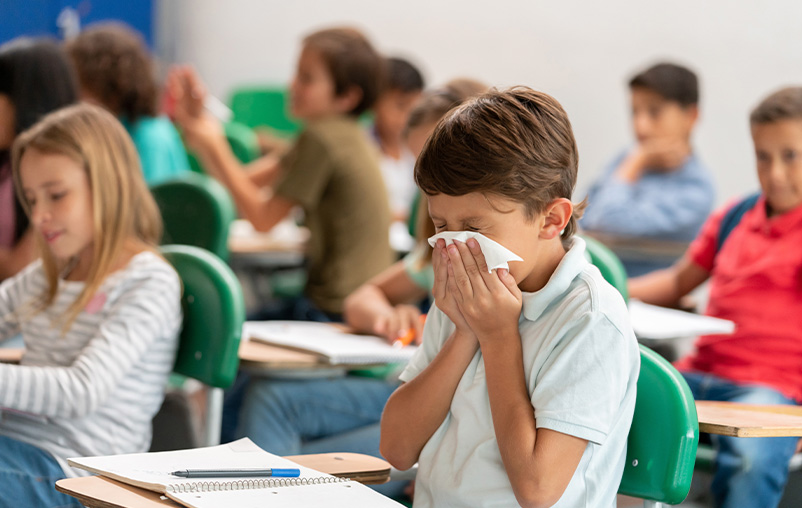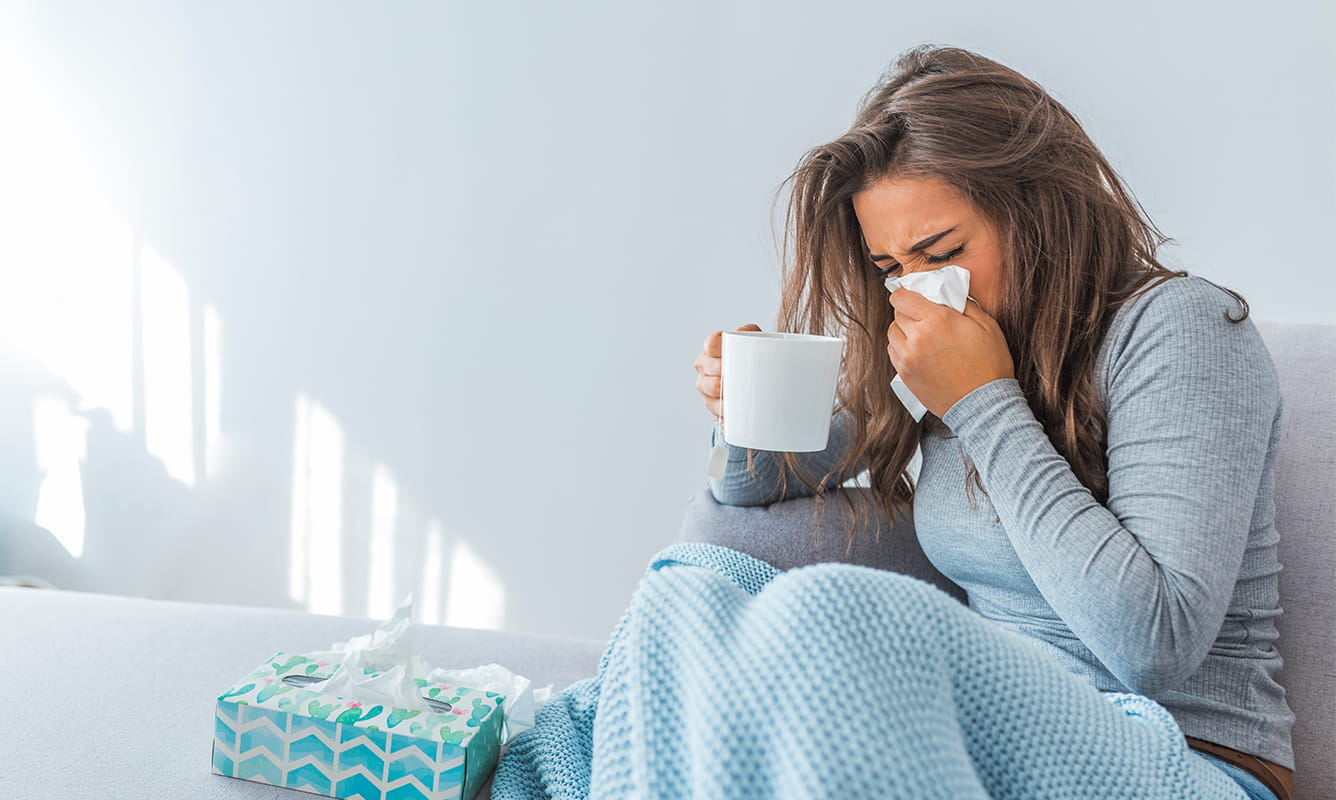Don't miss the video at the end of this blog demonstrating how to make your mask more comfortable.
Even with a COVID-19 vaccine now available, masks are not going away any time soon. We still need to wear them to keep ourselves and our neighbors safe for the foreseeable future. Masks are part of everyday life, and many of us find them annoying. Uncomfortable. Even irritating.
Thanks, however, to members of the integrative medicine program at University Hospital, relief may be as close as a few tiny drops of essential oil.
In April, when University Hospital staff began wearing masks for longer stretches of time, even outside patient-care areas, Dr. Jan Patterson and nurse Rebekah Kendrick heard the grumbling.
“People were complaining that smelling their breath or smelling the mask all day is very unpleasant. (They were) having really bad headaches at the end of the day, feeling super anxious or experiencing shortness of breath,” recalled Kendrick, who specializes in acute pain management.
Kendrick and Dr. Patterson decided to tackle the concerns through a research study that applies their specialized, holistic training.
They were already using natural, concentrated plant oils called essential oils to comfort patients. Could those oils also minimize the unpleasant side effects of wearing masks? Could they prevent healthcare employees from fidgeting with their masks, yanking them from their faces, even going without them when they needed face coverings for protection from COVID-19?
The science said yes.
How essential oils work
“We know that essential oils in addition to smelling really nice can have a lot of different effects on the body,” explained Dr. Patterson, the medical director of the hospital’s integrative medicine program and a professor of medicine and infectious disease at UT Health San Antonio.
“(The oils) go directly through the olfactory nerve, the smell nerve, up to the brain. They can have a very quick effect on the brain in terms of mood. They can have an effect on the respiratory system by opening up the lungs and making our breathing easier,” she said.
The team developed a simple process for their study: ask healthcare workers to describe the negative sensations of wearing masks; address those sensations with the properties of specific oils; apply several drops of a selected oil to an employee’s mask and document the response.
Cranky mask wearers seem to like the results.
“We’re hearing staff saying things like, it’s keeping me in a good mood, and I’m not wanting to take my mask off because it smells good,” said Kendrick. Others reported that their headaches have disappeared.
Deciding which essential oil to apply
Each oil tends to provide a special kind of relief:
- Orange is called the “happy oil” and is often calming.
- Lemon has a brightening and cleansing sensation.
- Peppermint promotes energy and mental focus and can open up the respiratory system. It is a powerful oil and must often be diluted.
- Lavender is good for anxiety.
- Eucalyptus opens the mind as well as the lungs.
The researchers have recently expanded their study beyond healthcare employees to include patients, and believe the public can also benefit from applying the oils.
Making your mask more comfortable to wear
The research team used pure, high-grade oils that can be pricey. Online retailers often charge $20 to $30 for half an ounce. Less expensive oils found in grocery and drug stores may also help, though Dr. Patterson advises to check for additives that can sometimes produce their own unpleasant effects.
If you’re trying this, remember: less is often more. Concentrated oils can be overpowering. Start with just a drop or two on the outside edges of the mask. If the effect is too strong, dilute the essential oil with a carrier oil like olive, coconut or almond.
These days wearing masks is often required in settings where someone with the virus can expose others just by coughing, singing or talking.
So, instead of suffering, treat your mask and brain to a dose of something pleasant.
Looking for more info on masks? Check out our article on Masks and face coverings: separating fact from fiction or New questions about the COVID-19 vaccine.
The video below featuring Dr. Jan Patterson and Rebekah Kendrick goes into further detail and shows you how to properly apply essential oils to your mask.





